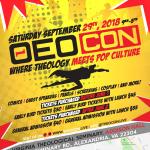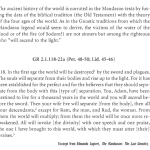In a recent blog post, Keith Giles wrote, “The fact is that the Holy Spirit almost always contradicts what has been written in the scriptures.”
While I appreciate the desire to offer a much-needed response and corrective to biblicism, I am not persuaded that this is the best way to do it.
Personally, I think it is better to recognize that the texts that eventually became scripture were the result of people who believed they were moved and guided by the spirit to push boundaries and challenge assumptions.
It is thus ironic that the texts produced by them or in response to their activities are then used to hedge in and put roadblocks in the way of those who seek to push boundaries and challenge authority in a subsequent era.
Positing a simple dichotomy of spirit vs. scripture risks encouraging a replacement of text-focused dogmatism with an experience-focused dogmatism.
I think it is more advisable to acknowledge clearly that the text is just a concretization of what people believed God to be inspiring in their time, and thus that whether we focus on text, tradition, logic, experience, or some combination of the above, and whether we push existing boundaries or seek to delineate and defend them, if our words and influence are remembered in a future age, we are liable to seem antiquated from that later perspective, just as voices from our past seem to us.
Nevertheless, Giles does make an important point, namely that the key figures that are looked back to as authorities by religious people today were figures who didn’t merely assert or defend but also challenged and departed from things that their contemporaries would have considered the “plain teaching” of the scriptures that existed in their time.
Jesus or Paul, Micah or Jeremiah, Muhammad or Moses – none simply affirms the authority of a text without also at least interpreting it in creative ways that stretch and transform its meaning. And sometimes they simply disagreed with those scriptures, whether they explicitly put it that way or not.













